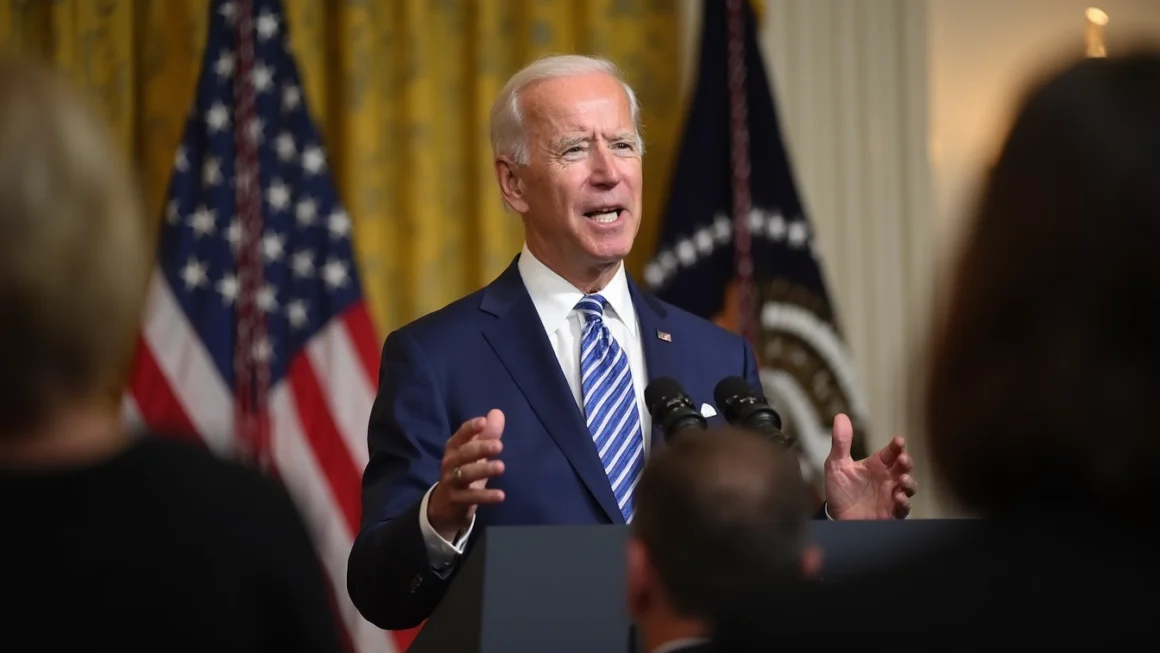Biden’s Proposal to Expand Medicare and Medicaid Coverage for Obesity Drugs
Table of Contents
In a significant move to address the growing obesity epidemic in the United States, President Joe Biden is set to propose expanded Medicare and Medicaid coverage for weight-loss drugs. This initiative, part of the administration’s broader healthcare agenda, aims to make these medications more accessible and affordable for millions of Americans struggling with obesity.
The Importance of Addressing Obesity
Obesity is a major public health concern in the United States, affecting more than 40% of adults. It’s associated with numerous health complications, including heart disease, diabetes, and certain cancers. By expanding access to weight-loss medications, the Biden administration hopes to tackle this issue head-on, potentially improving health outcomes for millions of Americans.
Details of the Proposed Coverage
The proposal, expected to be included in Biden’s budget plan for fiscal year 2025, would allow Medicare to cover FDA-approved obesity drugs. Currently, Medicare is prohibited from covering medications for weight loss. This change would represent a significant shift in policy, recognizing obesity as a medical condition requiring pharmaceutical intervention.
For Medicaid, the proposal suggests eliminating the option for states to exclude coverage for weight-loss drugs. This move would ensure more consistent access to these medications across different states, potentially reducing health disparities.
Impact on Pharmaceutical Companies
This proposal could have far-reaching implications for pharmaceutical companies developing and marketing weight-loss drugs. Companies like Novo Nordisk and Eli Lilly, which produce popular obesity medications such as Wegovy and Zepbound, stand to benefit significantly from expanded coverage. The increased accessibility could drive up demand for these drugs, potentially leading to further innovation in this pharmaceutical sector.
Financial Considerations
While the proposal aims to improve public health, it also raises questions about the financial impact on Medicare and Medicaid. Weight-loss drugs can be expensive, with some costing over $1,000 per month. The administration will need to carefully consider how to balance the health benefits with the potential increase in healthcare spending.
Potential Challenges and Criticisms
Despite the potential benefits, the proposal may face challenges. Critics might argue that lifestyle interventions, such as diet and exercise, should be prioritized over pharmaceutical solutions. There may also be concerns about the long-term effects and safety of these medications when used on a larger scale.
The Role of Automation in Healthcare Policy Implementation
As healthcare policies evolve, the implementation of new coverage rules can be complex. Automation tools can play a crucial role in streamlining these processes, ensuring efficient rollout and management of new healthcare initiatives. For those interested in exploring how automation can enhance healthcare policy implementation, automation platforms offer solutions to simplify complex workflows.
The Broader Context of Biden’s Healthcare Agenda
This proposal is part of Biden’s larger healthcare strategy, which includes efforts to reduce drug prices and expand access to affordable healthcare. By addressing obesity, a condition that disproportionately affects lower-income communities, the administration aims to tackle health inequities and improve overall public health.
Potential Impact on Public Health
If implemented, this expanded coverage could have a significant impact on public health. Increased access to obesity medications could lead to weight loss for many individuals, potentially reducing the incidence of obesity-related health conditions. This, in turn, could lead to reduced healthcare costs in the long term and improved quality of life for many Americans.
The Future of Obesity Treatment
The proposal signals a shift in how obesity is viewed and treated in the United States. By recognizing it as a medical condition requiring pharmaceutical intervention, it may pave the way for further advancements in obesity treatment and research. This could include the development of new drugs, as well as more comprehensive approaches that combine medication with lifestyle interventions.
Conclusion
President Biden’s proposal to expand Medicare and Medicaid coverage for obesity drugs represents a significant step in addressing one of America’s most pressing health issues. While the proposal faces potential challenges and criticisms, it has the potential to improve health outcomes for millions of Americans struggling with obesity. As this initiative moves forward, it will be crucial to monitor its implementation, effectiveness, and impact on both public health and healthcare spending.
The coming months will likely see extensive debate and discussion around this proposal as it makes its way through the budget process. Stakeholders from various sectors, including healthcare providers, pharmaceutical companies, and patient advocacy groups, will undoubtedly weigh in on its potential impact. As the conversation unfolds, it will be essential to keep the focus on improving public health while ensuring responsible use of healthcare resources.




